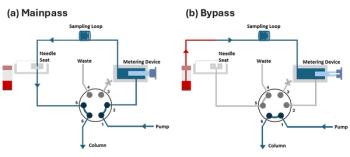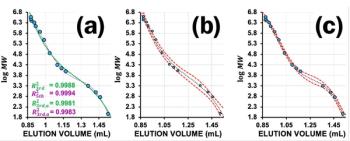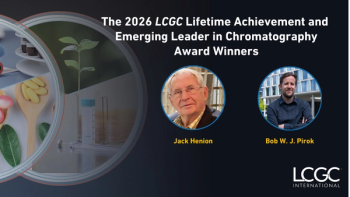
Milan Mrksich Wins Pittsburgh Analytical Chemistry Award
Milan Mrksich of Northwestern University has won the 2020 Pittsburgh Analytical Chemistry Award, which is presented annually by the Society for Analytical Chemists of Pittsburgh, one of the co-founders of the Pittcon conference. The award honors an individual’s impact in the field of analytical chemistry, including the introduction of a substantial technique, theory, or instrument.
Milan Mrksich of Northwestern University has won the 2020 Pittsburgh Analytical Chemistry Award, which is presented annually by the Society for Analytical Chemists of Pittsburgh, one of the co-founders of the Pittcon conference. The award honors an individual’s impact in the field of analytical chemistry, including the introduction of a substantial technique, theory, or instrument.
Mrksich is the Henry Wade Rogers Professor at Northwestern University, with appointments in the Departments of Chemistry, Biomedical Engineering, and Cell & Developmental Biology. He was the founding director of Northwestern’s Center for Synthetic Biology and an associate director of the Robert H. Lurie Comprehensive Cancer Center, where his focus included strengthening state-of-the-art instrumentation and techniques.
Mrksich received his bachelor’s degree in chemistry from the University of Illinois. His doctorate in chemistry is from Caltech. He served as an American Cancer Society postdoctoral fellow at Harvard University before joining the faculty at the University of Chicago in 1996, where he remained until joining Northwestern in 2011. In addition to the Pittsburgh Analytical Chemistry Award, Mrksich has been the recipient of the Camille Dreyfus Teacher-Scholar Award, the TR100 Innovator Award, and the Arthur C. Cope Scholar Award. He was elected to the American Institute for Medical and Biological Engineering and is the Illinois Bio ICON Innovator Awardee.
Mrksich’s laboratory has pioneered technologies that include strategies to integrate living cells with microelectronic devices; methods to enable high throughput assays for drug discovery; and approaches to making synthetic proteins for therapeutic use. He developed the self-assembled monolayers with matrix-assisted laser desorption-ionization mass spectrometry (SAMDI) biochip technology. SAMDI increases the pace of experiments by allowing enzymes to be tested at a rate of a hundred thousand per day, a breakthrough that has become the leading “label-free” technology in drug discovery and has addressed a pressing need in early stage drug development. His research has been described in approximately 200 publications and 500 invited talks.
Newsletter
Join the global community of analytical scientists who trust LCGC for insights on the latest techniques, trends, and expert solutions in chromatography.




